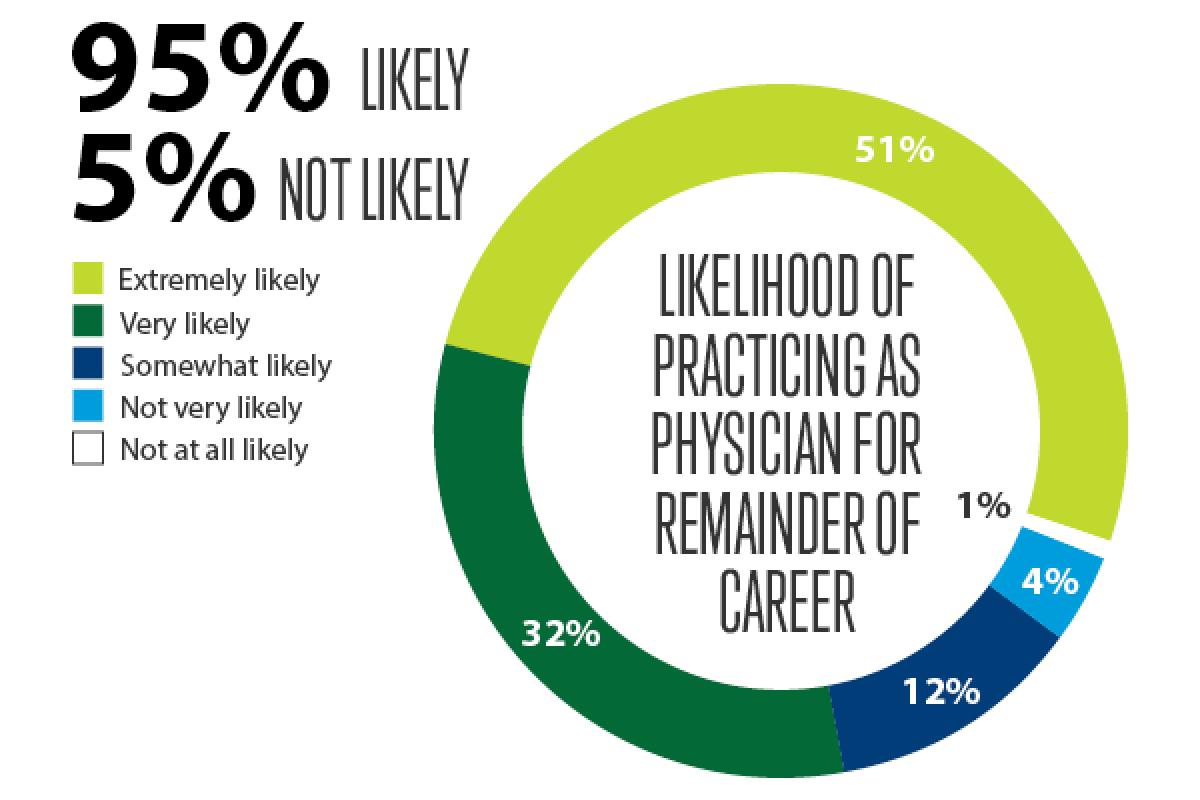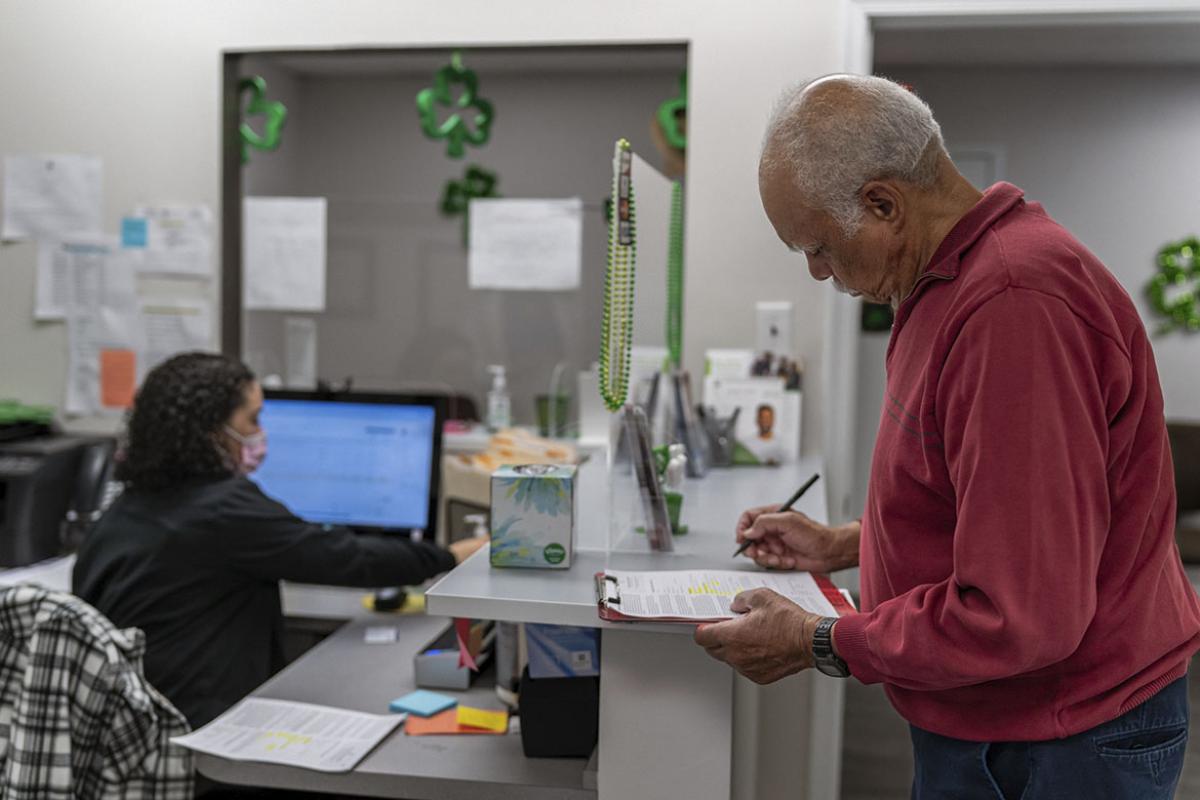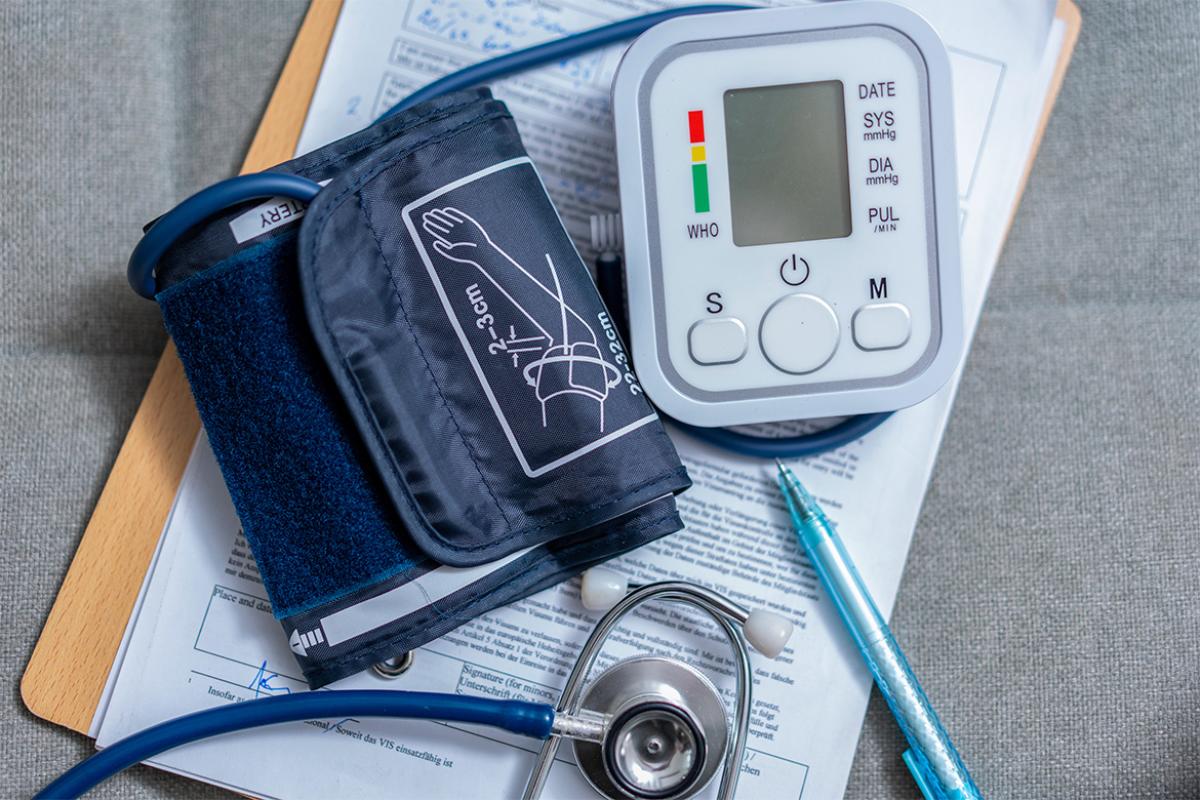They occasionally may be frustrated by voluminous paperwork and bureaucratic snarls that take them away from patient care, but the vast majority of today’s young physicians, residents and medical students say they remain satisfied or very satisfied with their chosen field. They also indicate that their desire to help people, the prime motivator for entering medicine in the first place, binds them to their profession.
These are among the results of a recent AMA survey of 1,200 physicians and physicians-in-training—an equal number of students, residents and young physicians—that was conducted in February and March to better understand the genesis of young physicians’ decision to pursue medicine and the challenges they face in today’s health care environment.
Nine in 10 respondents reported that they were “somewhat satisfied” or “very satisfied” with their choice to be a physician. Among the physicians and residents surveyed, 88 percent said they were glad they chose medicine. The figure was higher among medical students: 94 percent. Ninety-six percent of those surveyed were 40 or younger.
Most encouraging among the findings of those surveyed was this fact: The choice to pursue medicine usually grows out of physicians’ deeply felt drive to aid patients, with three-quarters listing that as the most important factor in choosing medicine as career, followed by the intellectual stimulation that the study of medicine provided—63 percent. The sense of mission that drives physicians to join medicine is what is likely to keep them practicing, the survey found. Asked what keeps them in their chosen field, 82 percent said it was the capacity to help people.
Another noteworthy finding in the survey was the age at which physicians, residents and medical students recognized that they wanted to enter medicine. By the time they were 19, about 75 percent realized they want to become physicians, with 25 percent reporting that they possessed such self-knowledge between the ages of 5 and 12. Sixty-two percent of respondents said that they were self-motivated, with 76 percent of medical students expressing that sentiment.
Half of respondents also agreed with the statement that “becoming a doctor is more of a calling than a choice.” Those who viewed medicine as a calling often pointed to a seminal event in their lives. “I broke my femur when I was 6, and the experience of being a patient helped to shape my desire to become a physician,” said one respondent. “Seeing my mother fight a chronic illness taught me that this is the only profession where you become so close to your patients,” commented another.
The survey results were not devoid of findings that suggest that physicians and physicians-in-training face significant challenges that can cast doubt on their decision to pursue medicine. A slim majority of respondents—51 percent— said they at least sometimes question their decision to practice medicine. Only 11 percent said they never questioned it.
The areas of discontent that young physicians, residents and medical students most frequently cited were administrative burdens (54 percent), stress (49 percent), insufficient time with patients (43 percent), and long hours and on-call schedules (41 percent).
But even with these challenges, and many others, a comfortable majority of respondents—61 percent—said they would likely encourage others to pursue a career in medicine. Only 13 percent said they were unlikely to do so.
The physicians, residents and medical students surveyed demonstrated a common characteristic: perseverance to pursue their mission despite discouragement. “What kept me motivated is that health sciences interest me more than anything I have interacted with,” said one medical student. “I have interacted with plenty of other physicians who love their jobs and have demonstrated to me that the reward of helping people outweighs the burdens that come with being a doctor.”




